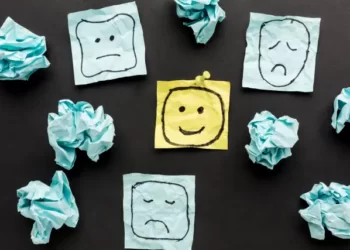- Everyday Sociology
- Academic Sociology
- Subject Areas
- Sociological Perspectives
- Sociology of Crime & Deviance
- Sociology of Disability
- Sociology of Education
- Sociology of Family
- Sociology of Body & Health
- Sociology of Identity
- Sociology of Inequalities
- Sociology of Media
- Sociology of Power
- Sociology of Race & Ethnicity
- Sociology of Religion
- Sociology of Sexuality & Gender
- Sociology of Social Exclusion
- Sociology of Social Movements
- Sociology of Stratification
- Sociology of Technology
- Sociology of Work
- Research Methods
- Guides & How To’s
- Publications & Resources
- Conferences & Events
- Subject Areas
- The Interlocutor
- Dictionary
- About
- Everyday Sociology
- Academic Sociology
- Subject Areas
- Sociological Perspectives
- Sociology of Crime & Deviance
- Sociology of Disability
- Sociology of Education
- Sociology of Family
- Sociology of Body & Health
- Sociology of Identity
- Sociology of Inequalities
- Sociology of Media
- Sociology of Power
- Sociology of Race & Ethnicity
- Sociology of Religion
- Sociology of Sexuality & Gender
- Sociology of Social Exclusion
- Sociology of Social Movements
- Sociology of Stratification
- Sociology of Technology
- Sociology of Work
- Research Methods
- Guides & How To’s
- Publications & Resources
- Conferences & Events
- Subject Areas
- The Interlocutor
- Dictionary
- About
Everyday Disability
Disability is not just a medical or personal issue, but a social one. Everyday sociology of disability considers how society creates and responds to disability, and how disability affects people’s lives and identities in the everyday. It rejects the idea that disability is a problem or defect that needs to be fixed or cured, and instead shows how disability is a result of social and cultural factors, such as discrimination, oppression, and exclusion.In this category, you will find articles that cover different topics in everyday sociology of disability, such as how the social model of disability emerged and evolved, how disability intersects with other aspects of social identity, such as race, gender, and class, how global issues, such as poverty, war, and migration, influence disability, how disabled people are represented and involved in the media and politics, how education and work can be more inclusive and accessible for disabled people, and how the disability rights movement fights for justice and equality. You will also discover some sociological theories and approaches that shape the sociology of disability, such as Marxism, feminism, postmodernism, phenomenology, and critical disability studies. If you want to learn more about how society and disability interact and influence each other, this category is for you.
No Content Available
More From SociologyMag
No Content Available
Browse by Tag
2023
Attitudes
Bibliography
Blended Families
British Sociological Association
Compound Families
Compound Family
Compound Family Definition
Conferences
Definition of Compound Family
Dictionary of Sociology
Film Screening
Ideology
Lone-Parent Families
Lone Parent Bibliography
Moral Panics
Neoliberalism
NHS
Polygamous Families
Reconstituted Families
Satanic Panic
Single-parent Families
Sociological Perspectives
Sociology Documentary
Sociology Family Types
Sociology Guides
Sociology of Crime & Deviance
Sociology of Disability
Sociology of Education
Sociology of Film
Sociology of Health
Sociology of Religion
Sociology of Social Media
Sociology of the Family
Stem Families
Stepfamilies
Symbolic Interactionism
Totemism
UBI
UBI Labs
Universal Basic Income
Universal Basic Income Documentary
What are Blended Families
What are Reconstituted Familes
What Are Stepfamilies
Latest Academic
ADVERTISEMENT
SociologyMag is an educational website designed to bring sociology to a wider audience. We look at how sociology can be used in the everyday by creating content which draws on academic sociology. We also target sociology from the academic side by publishing articles to help students at all levels from beginner to PhD.
© 2022 SociologyMag




